Description
Keyestudio Microbit V2 Robot Car Kit for BBC Microbit V2 Smart Cars for Makecode & Micropython Programming Kids STEM Toys
Keyestudio Microbit V2 Robot Car Kit for BBC Microbit V2 Smart Cars for Makecode & Micropython Programming Kids STEM Toys
Note: If you choose without microbit V2 the car received will NOT including microbit V2 !
Specifications
-
Voltage: DC 5V
-
Current: USB power supply or power supply with a capacity greater than or equal to 2A
-
Maximum power: maximum output power is 10W
-
Operating temperature range: 0-50 degrees Celsius
-
Dimensions: 120*90.7mm
-
Environmental attributes: ROHS
Tutorial: https://docs.keyestudio.com/projects/KS0426/en/latest/

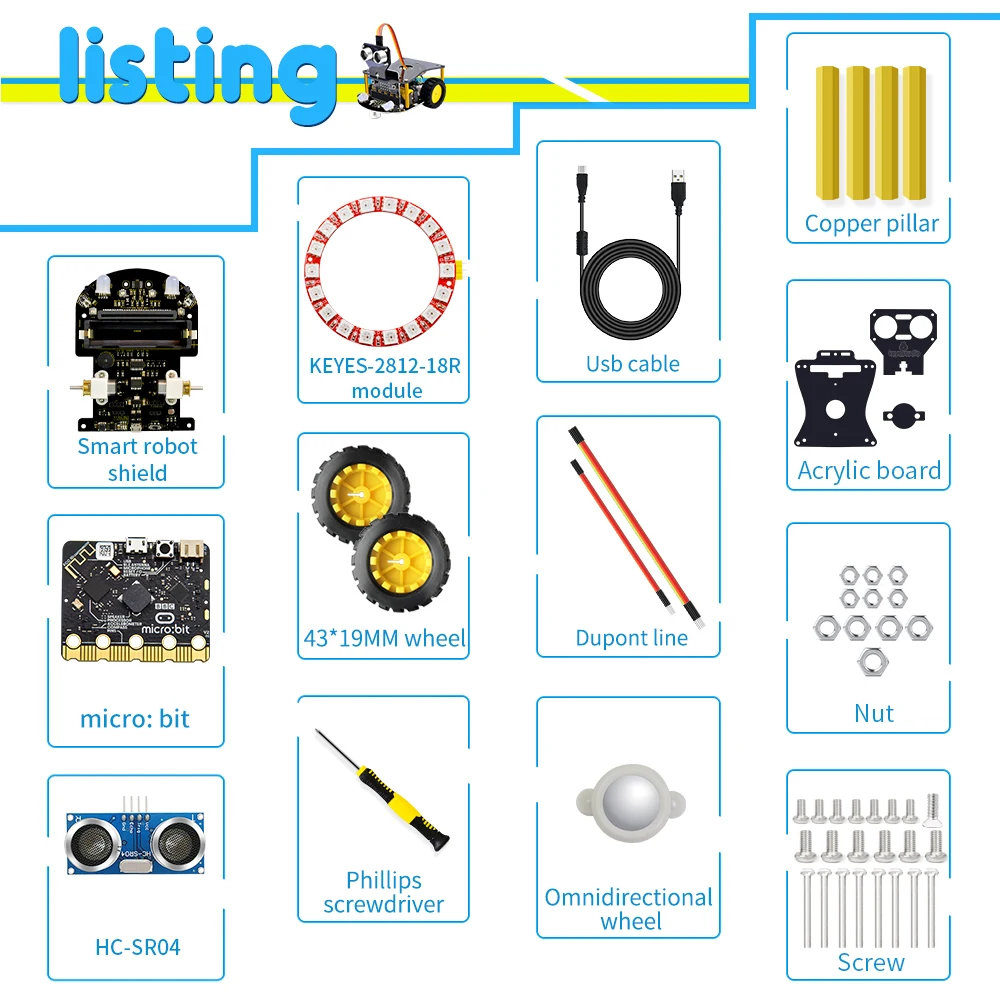
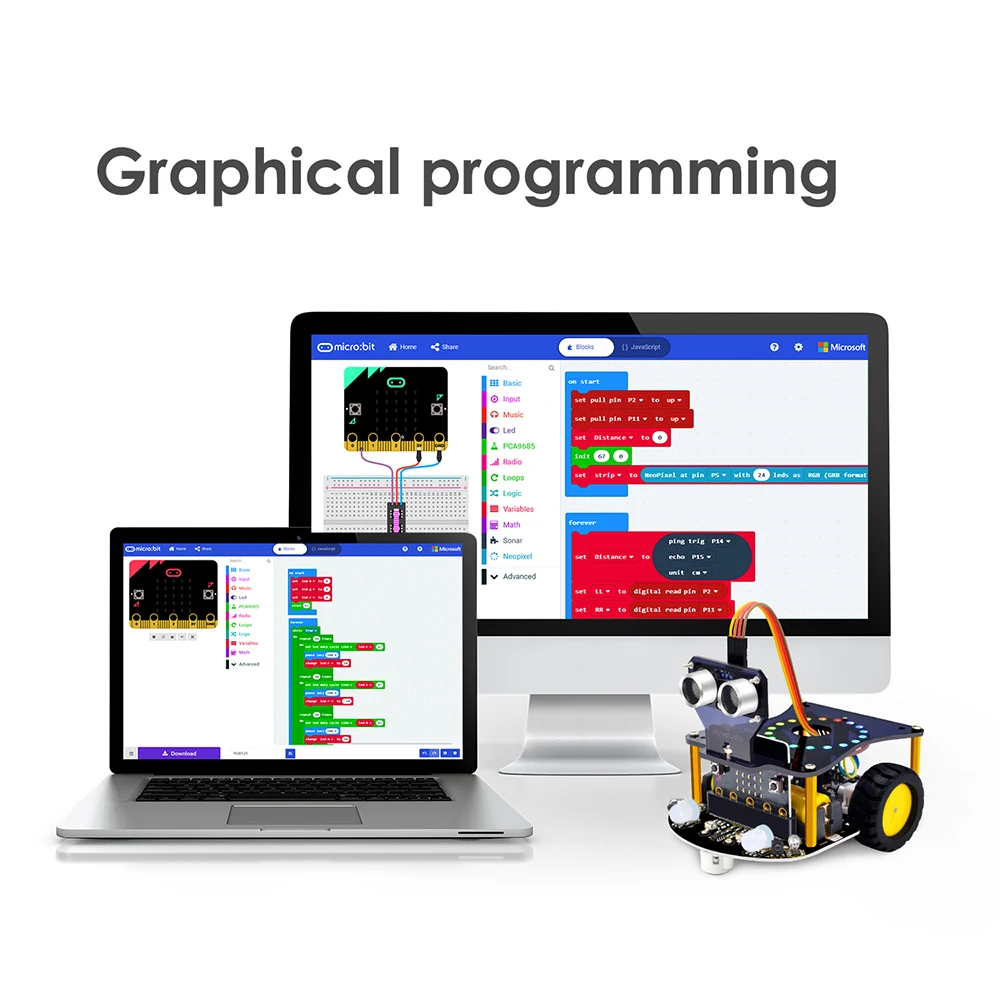

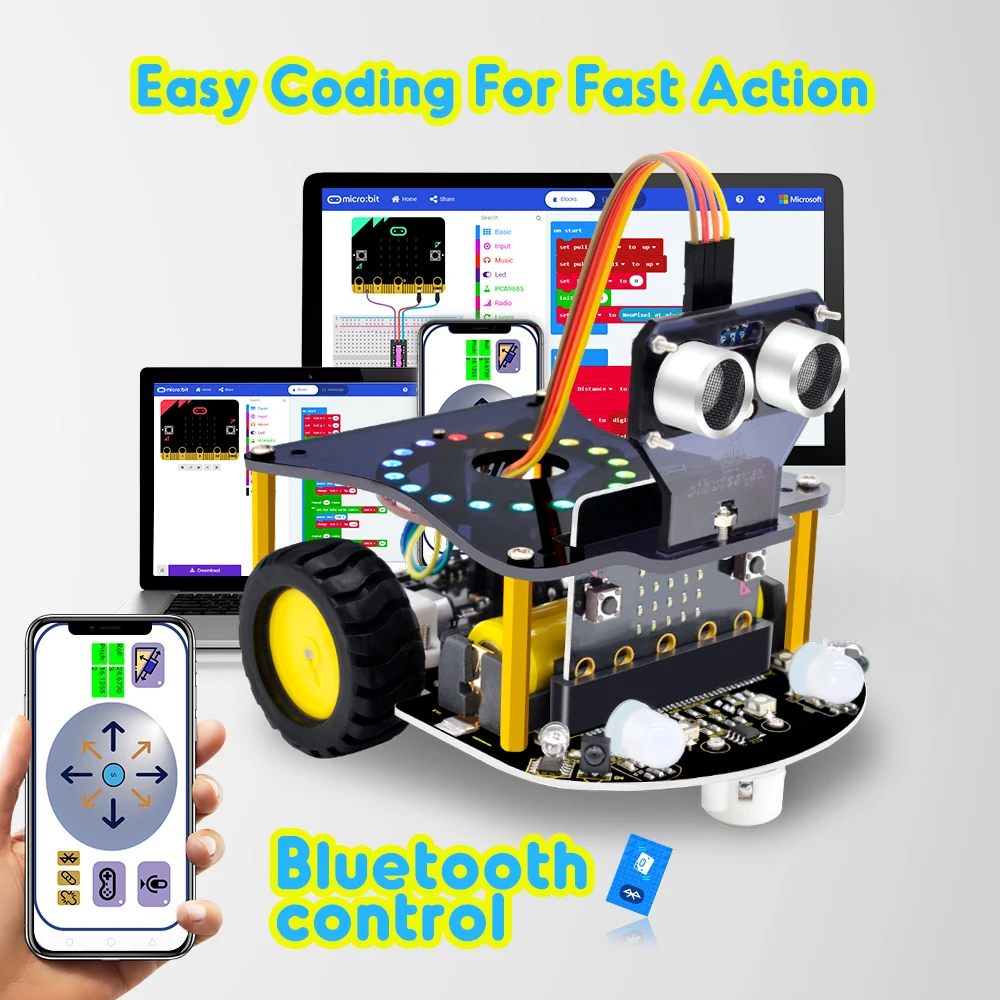



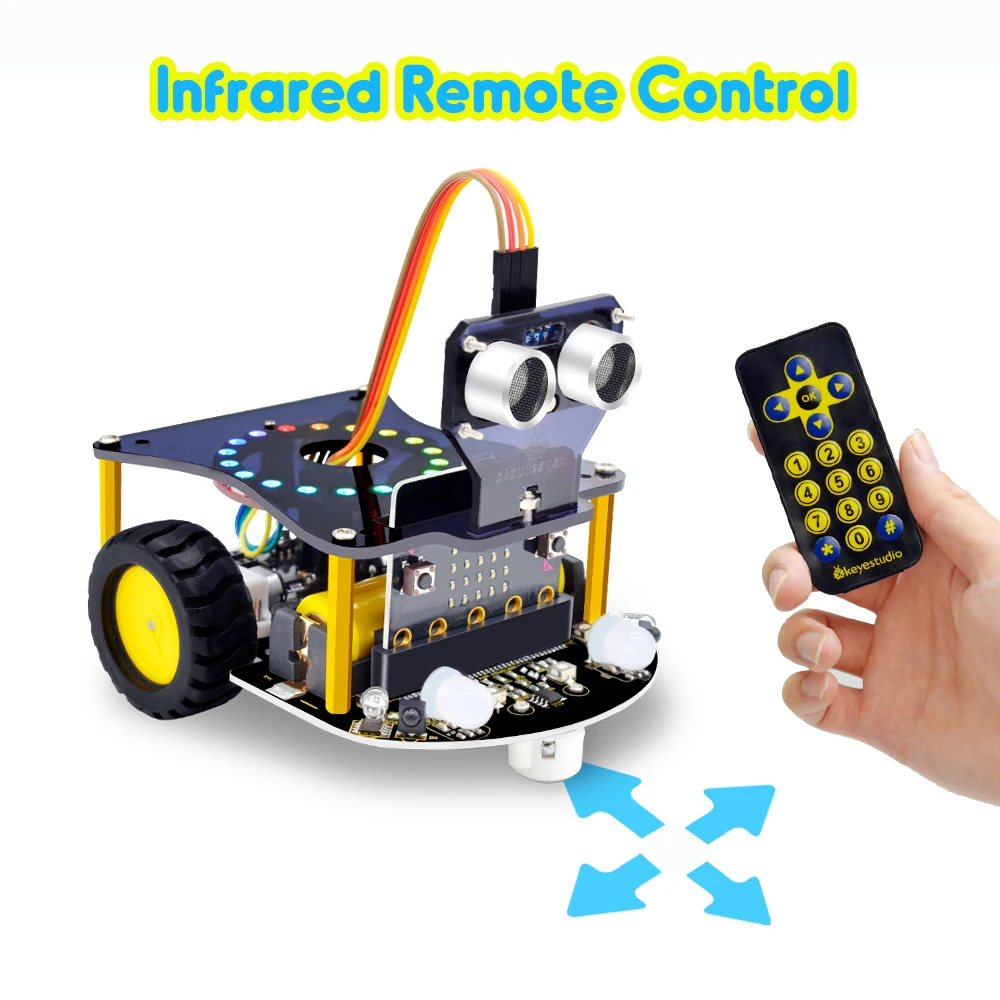
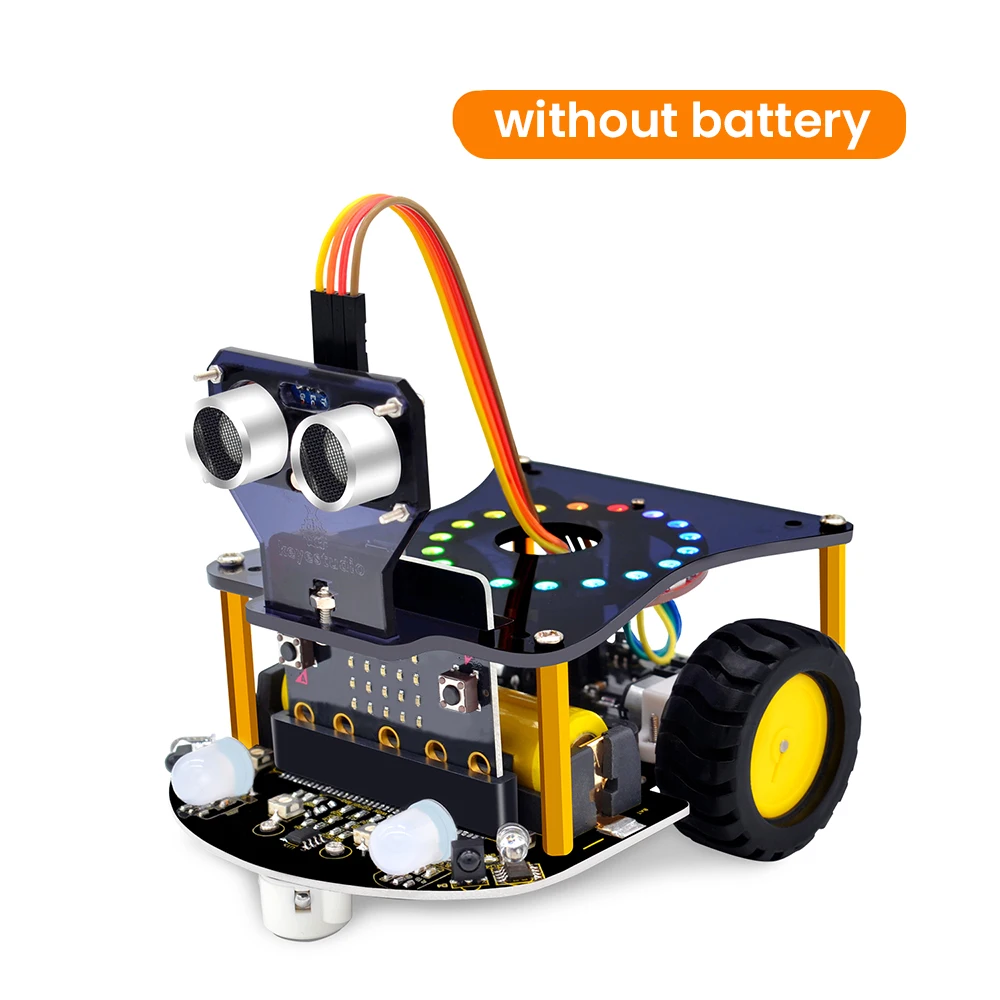

Micro:bit is significantly applied to STEM education for teenagers as a small microcontroller which features small in size easy to carry and powerful function. At present innovative technology products like robots wearable devices and interactive electronic games can be produced by programming and code.
In this kit we will guide you how to control and generate a Micro:bit turtle smart car through programming in Makecode.
MakeCode is a framework for creating interactive and engaging programming experiences for those new to the world of programming. The platform provides the foundation for a tailored coding experience to create and run user programs on actual hardware or in a simulated target.
To make you deeply know the micro:bit we provide test code and projects.
The Keyestudio microbit smart car integrates obstacle avoidance line tracking and IR and Bluetooth control functions. It contains passive buzzer ultrasonic sensor KEYES-2812-18R module IR obstacle avoidance sensor and so on.
The passive buzzer makes music play a KEYES-2812-18R module can display different effects a photoresistor can detect light intensity.
Simultaneously this smart car is chargeable. You only connect power to the port of battery holder.
Note: we adopt V1.5 micro:bit in the whole tutorial but our tutorial is also compatible with the latest version micro:bit. When doing experiment with latest micro:bit you need to transfer code into Makecode online editor first save code again then download it to micro:bit.

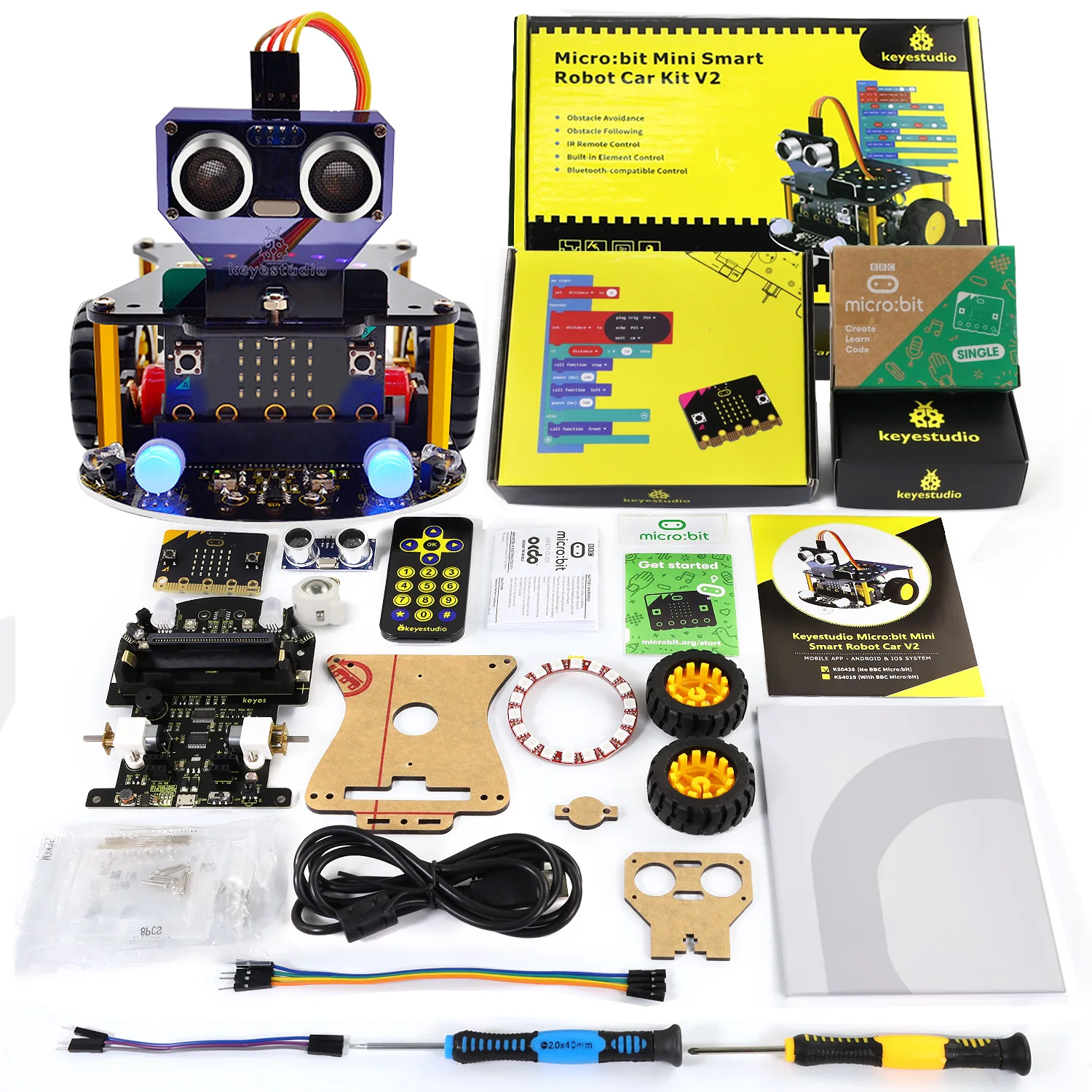
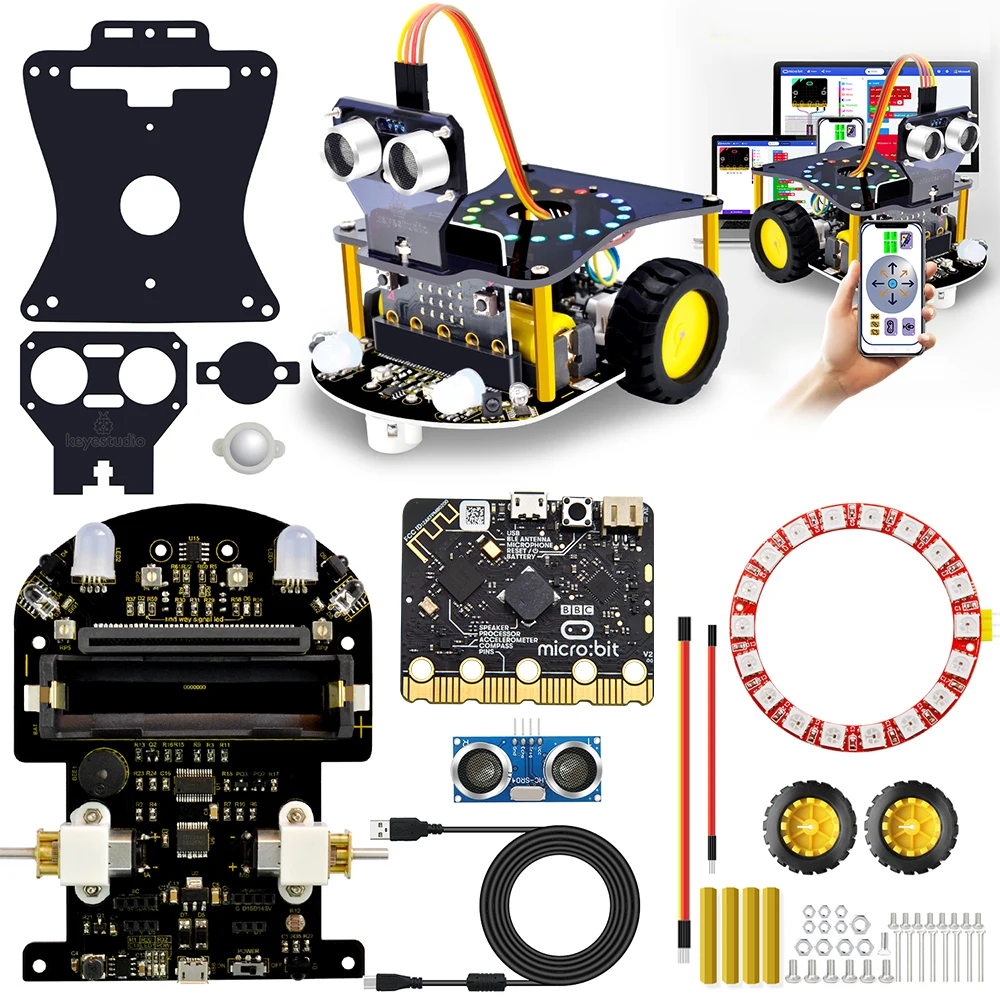
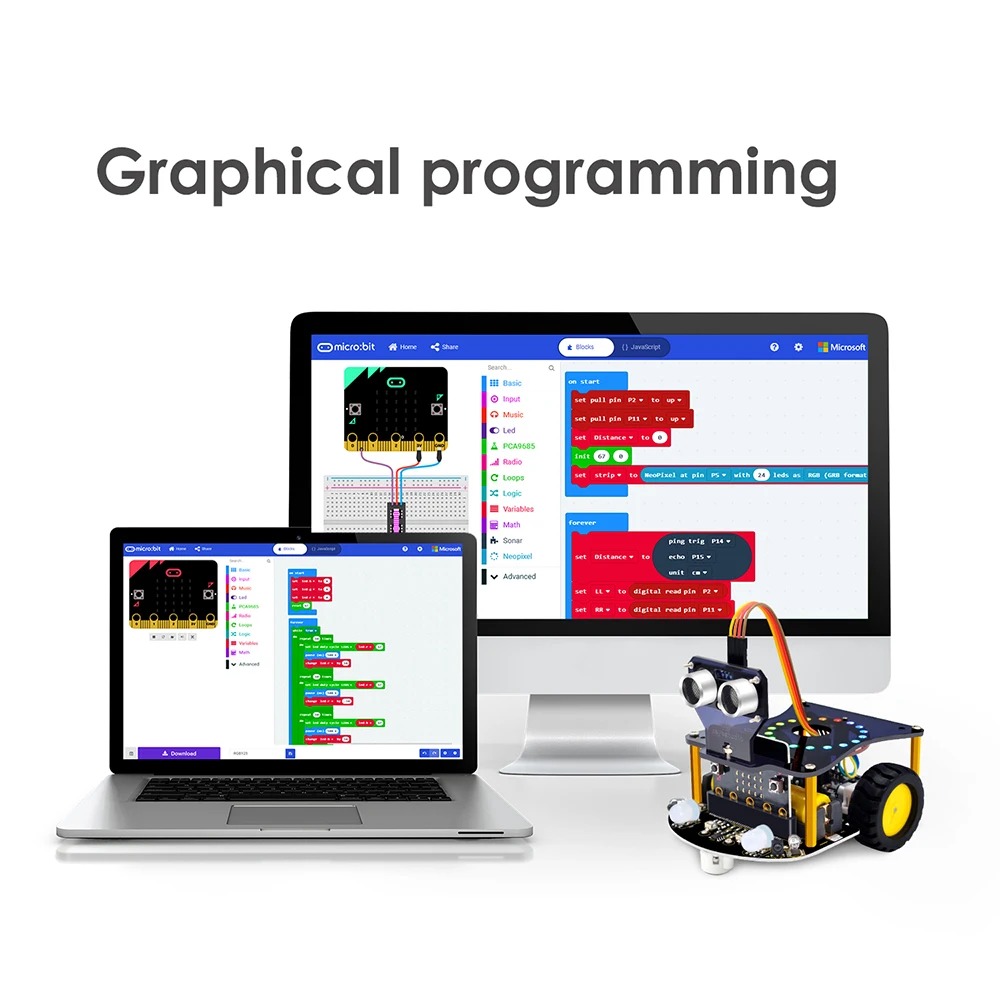
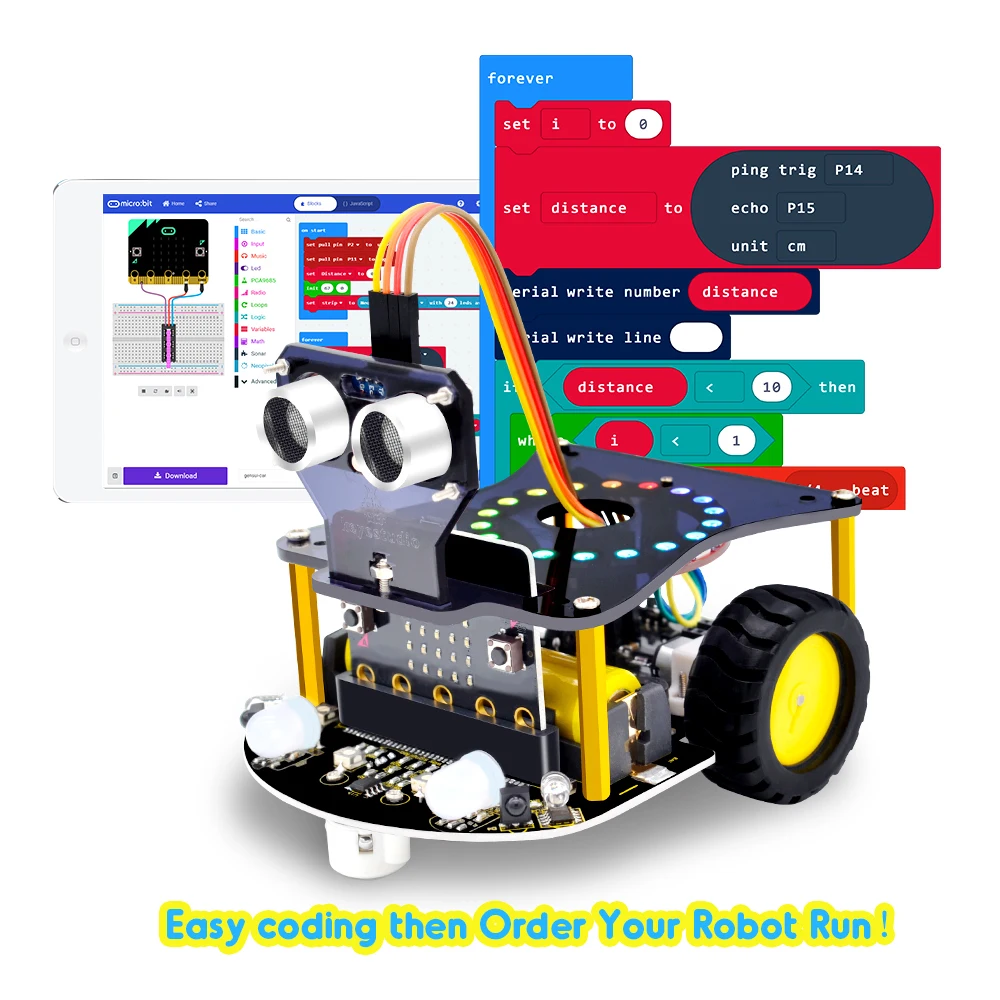
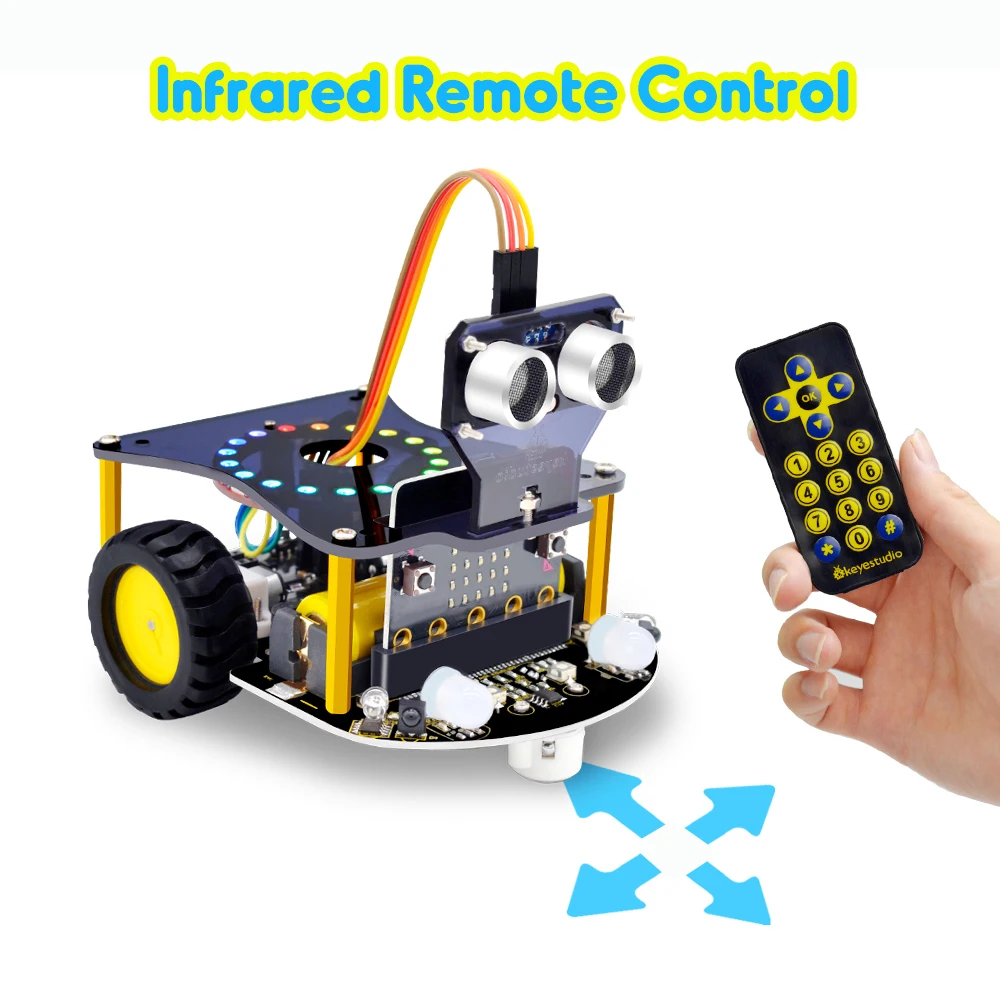
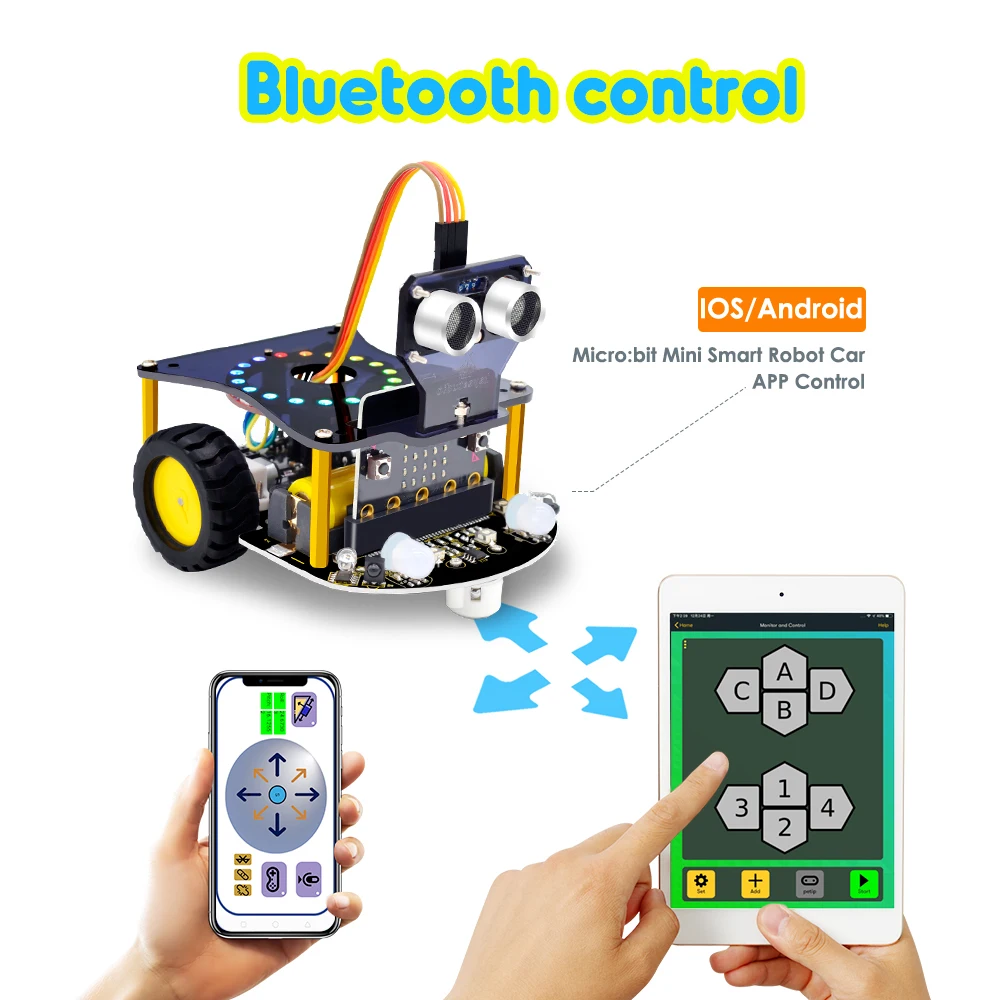












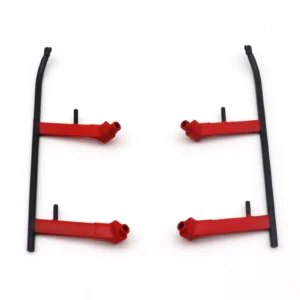
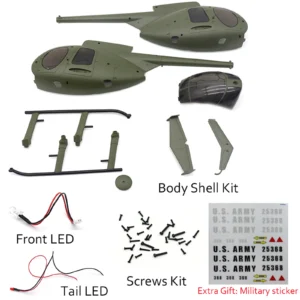
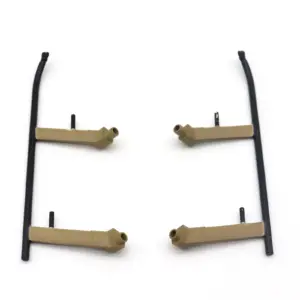
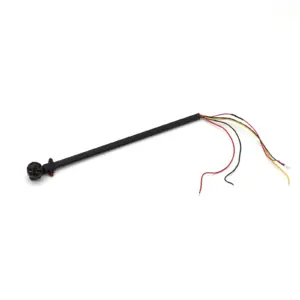
Reviews
There are no reviews yet.